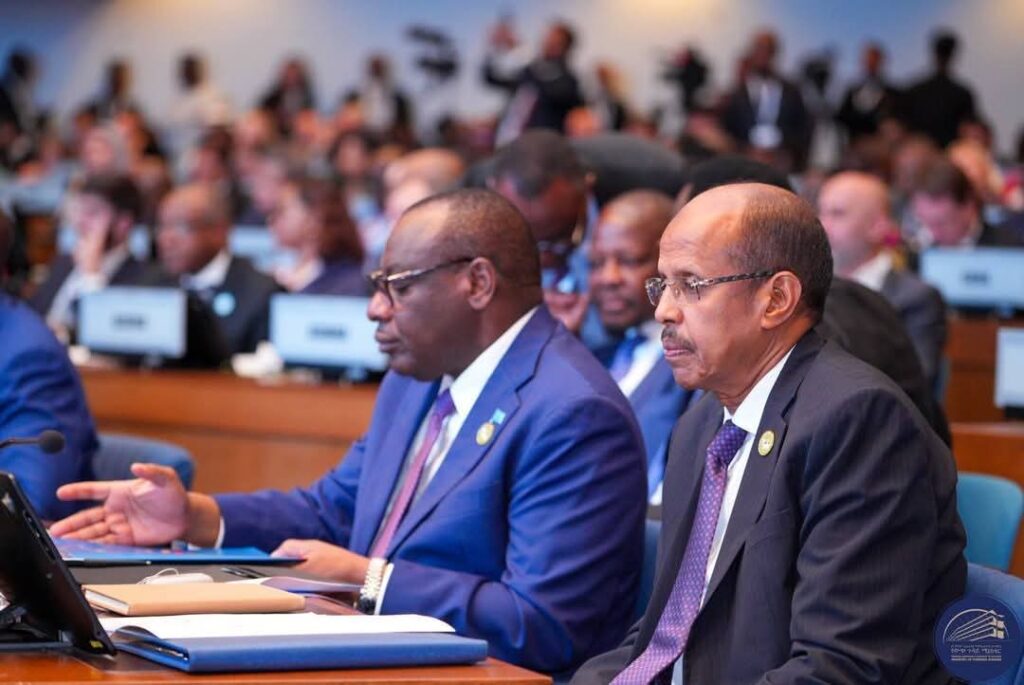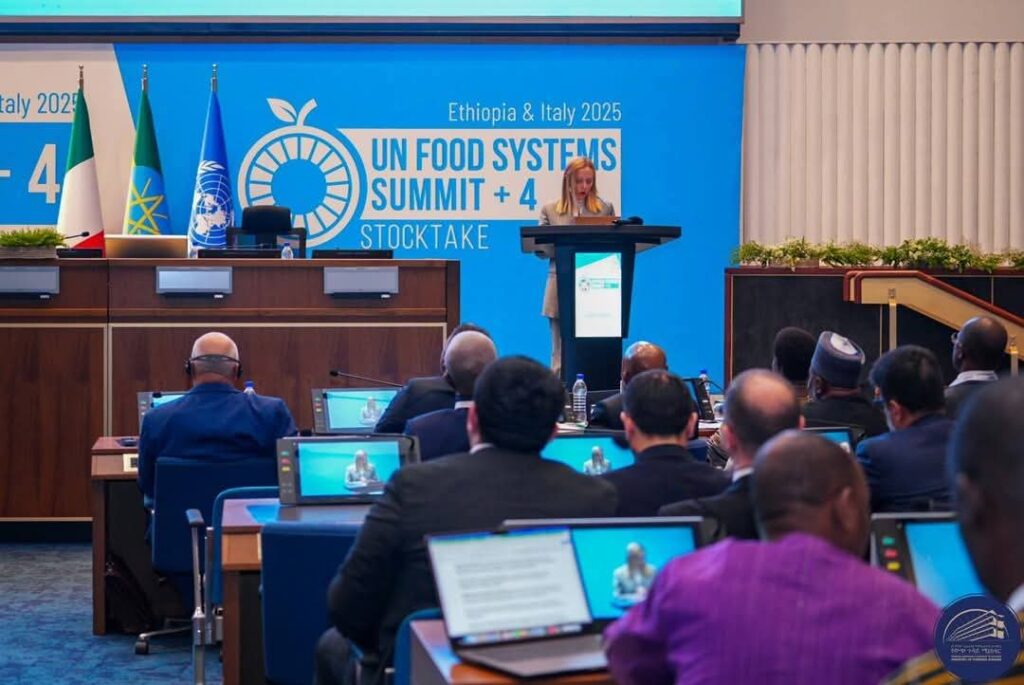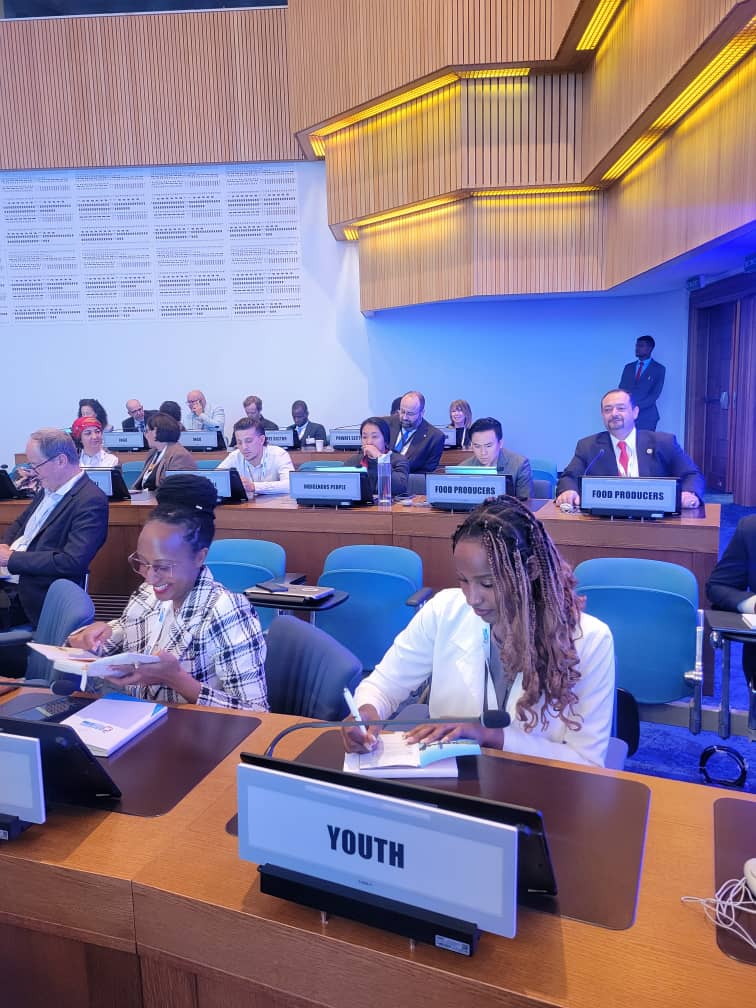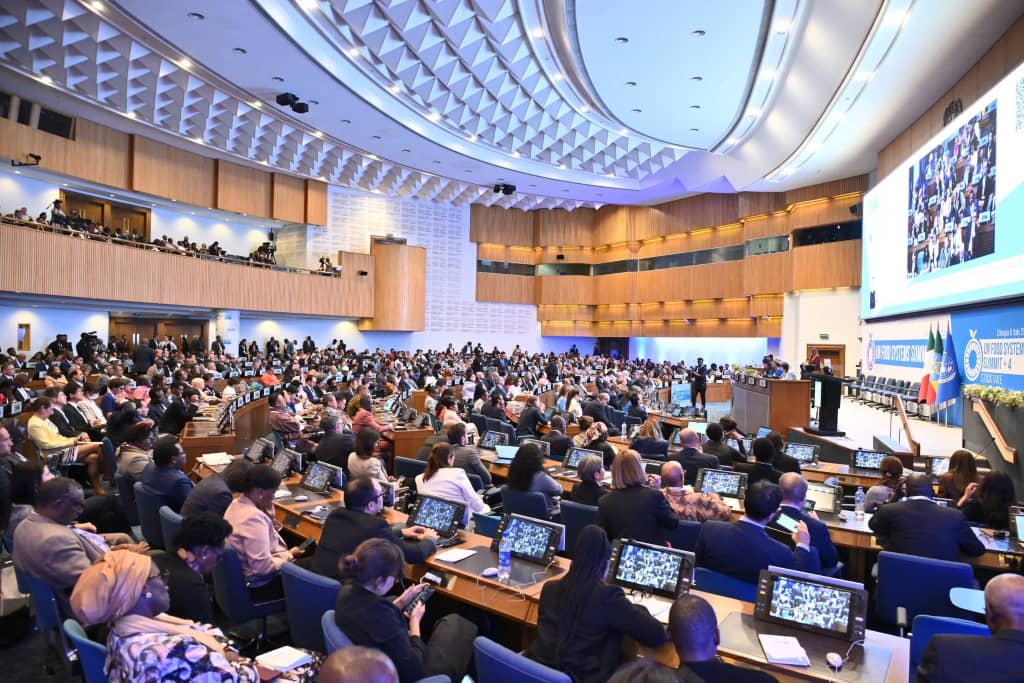0076/HAAC/01-2023/pl/P
Addis Ababa, Ethiopia ,29 July 2025
Second United Nations Food Systems Summit Stocktaking (UNFSS+4) concluded today in Addis Ababa, Ethiopia, with a resounding call to accelerate collective global action towards transforming food systems into engines of sustainability, equity, and resilience.

Co-hosted by the Governments of Ethiopia and Italy, in partnership with the United Nations Food Systems Coordination Hub, the three -day summit (27–29 July) gathered more than 3,500 delegates from 145 national delegations and over 700 non-state actors, including youth leaders, Indigenous representatives, civil society, scientists, and private sector stakeholders. Held at the UN Economic Commission for Africa (UNECA) headquarters, the summit served as a pivotal mid-point review of progress since the inaugural 2021 UN Food Systems Summit, under the theme “From Vision to Action.”
A High-Level Platform for Global Commitment.

The summit was opened by a distinguished assembly of global leaders, including H.E. Abiy Ahmed Ali, Prime Minister of Ethiopia; H.E. Giorgia Meloni, Prime Minister of Italy; and H.E. Amina J. Mohammed, UN Deputy Secretary-General. They were joined by H.E. William Samoei Ruto, President of Kenya; H.E. Kashim Shettima, Vice-President of Nigeria; H.E. Hassan Sheikh Mohamud, President of Somalia; H.E. Mahmoud Ali Youssouf, Chairperson of the African Union Commission; and Mr. Claver Gatete, Executive Secretary of UNECA.
In a virtual address, UN Secretary-General António Guterres praised the strong partnership between Ethiopia and Italy in hosting the summit and emphasized the critical role of food systems in achieving all 17 Sustainable Development Goals (SDGs). Guterres called for urgent investment in climate-smart agriculture, the adoption of emerging technologies including artificial intelligence and bold policy reforms to reduce import dependency and enhance global food security.
National Commitments and Policy Innovation

Ethiopian Prime Minister Abiy Ahmed outlined his government’s ambitious, whole of nation roadmap for food systems transformation, closely aligned with the country’s macroeconomic reforms. He spotlighted successful initiatives such as:
Irrigation-led wheat expansion, significantly reducing dependency on imports
The “Bounty of the Basket” initiative, promoting high-value livestock and aquaculture
The Seqota Declaration, aiming to eradicate child undernutrition by 2030
The Green Legacy Initiative, which has planted over 40 billion trees to enhance climate resilience and agricultural productivity
Prime Minister Giorgia Meloni of Italy underscored food insecurity as a critical global security challenge linked to instability, migration, and conflict. She reaffirmed Italy’s commitment to global cooperation, particularly in the Horn of Africa, and stressed the need for coordinated international strategies to address food systems holistically.
Driving Action Through Partnerships and Innovation
Central to the summit was a focus on scaling proven solutions through cross-sector collaboration. One of the landmark developments was the announcement of the Global Flagship Initiative for Food Security (GFIFS), which aims to strengthen food value chains in countries such as Cameroon through joint financing with the UN Joint SDG Fund. The initiative is scheduled for formal launch at Science Week in New York this September.
Key themes discussed throughout the summit included:
Integration of food systems into SDG and climate action plans
Scaling finance for resilience, smallholder support, and youth entrepreneurship
Data-driven governance and science-based policymaking
Accountability mechanisms at global, national, and local levels
The 2025 edition of the State of Food Security and Nutrition in the World (SOFI) report was also launched at the summit, detailing the growing impact of climate shocks, inequality, and conflict on hunger and malnutrition.
Youth at the Forefront
Youth leadership took center stage with the launch of the UNFSS+4 Youth Declaration for Food Systems Transformation, a global manifesto shaped by extensive youth consultations. The declaration outlines clear demands for equitable food systems reform and reinforces the need to meaningfully engage young people in shaping food policy at all levels.
“Too often, food systems are seen as part of our global challenges, when in fact they can be one of the greatest solutions for people, planet, peace, and prosperity,” said UN Deputy Secretary-General Amina J. Mohammed during her keynote address.





